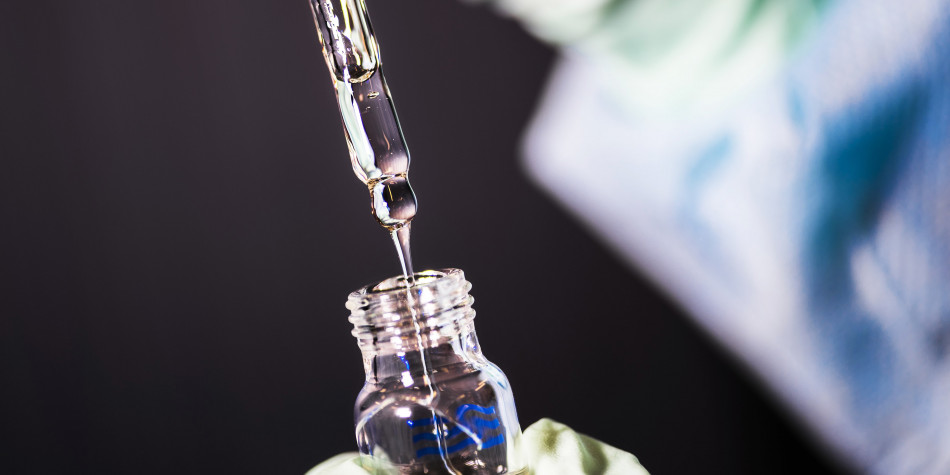
The study was carried out within the framework of the project "Development of technologies for obtaining new organic synthesis products with antimicrobial activity
the activity of the Perm REC "Rational Subsoil Use". The project manager was Associate Professor of the Faculty of Chemistry Natalia Lisovenko.
Scientists received one of the patents for the invention of the chemical compound benzylammonium salt 4-ethoxycarbonyl-5-oxo-2-(2-oxo-2-phenylethylidene)-2.5-
dihydro-1H-pyrrol-3-olate. "The action of this substance is aimed at inhibiting gram-positive bacteria that cause purulent-
inflammatory diseases, and also suppresses the growth of yeast fungi that cause candidiasis infections," explains Ivanov, senior lecturer at the Department of Biochemistry and Medical Biotechnology of PSNIU, one of the authors of the development. Together with him, Svetlana Balandina, the head of the Bactericide laboratory of the Faculty of Chemistry, also worked on the creation of the compound.
Chemists have also received patents for the production of antioxidant substances that can become the basis of a Russian medicine for postcovid syndrome. "We have developed several new antioxidants – substances that prevent the oxidation of any substances. They are used in various medicines. For example, a drug for the treatment of Post-COVID-19, a syndrome caused by a dangerous viral disease, can be created on their basis," says Ekaterina Khramtsova, associate professor of the Department of Organic Chemistry. Postcovid syndrome is a long–term pathological manifestations that may appear after a person has suffered a coronavirus infection. They can manifest themselves in the form of sleep disorders and depression, heaviness in the chest, a feeling of incomplete breathing, as well as headaches, muscle and joint pain.
The third chemical compound, which is being worked on by PSNIU chemists, can effectively fight the causative agent of meningitis – a yeast-like fungus
Cryptococcus neoformans. A dangerous fungus in people with weakened immunity causes inflammation of the membranes of the brain and spinal cord. Quite often it is
the disease ends in a fatal outcome. "With the help of Australian scientists (CO-ADD, Brisbane, Australia), who have been conducting a systematic
screening of chemical compounds against pathogens, we managed to find among our developments an active substance with low toxicity capable of killing a deadly fungus," says Ekaterina Khramtsova. Currently, PSNIU scientists have applied for a patent, and are also looking for partners to continue research.


